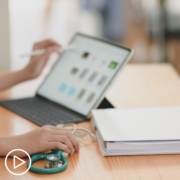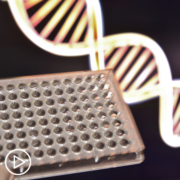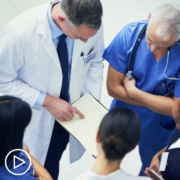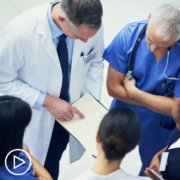How Is Follicular Lymphoma Diagnosed and How Does It Progress?
How Is Follicular Lymphoma Diagnosed and How Does It Progress? from Patient Empowerment Network on Vimeo.
Follicular lymphoma expert Dr. Jane Winter explains common symptoms, tests involved in diagnosis, and how the disease may progress over time.
Dr. Jane Winter is a hematologist and medical oncologist at Robert H. Lurie Comprehensive Cancer Center at Northwestern University. More information on Dr. Winter here.
See More from The Pro-Active Follicular Lymphoma Patient Toolkit
Related Programs:
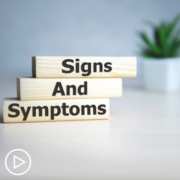
|

Three Key Steps for Newly Diagnosed Follicular Lymphoma Patients |
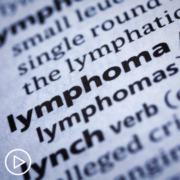
|
Transcript:
Laura Beth:
Dr. Winter, how is follicular lymphoma typically diagnosed?
Dr. Winter:
So, most often, it’s because of a new lump or bump that a patient notes, perhaps a lump in the neck, but also increasingly these days, many individuals wind up getting CT scans. Belly pain for which they go to the emergency room or something to evaluate another diagnosis, maybe some blood in the urine related to a totally different issue. But CT scans often reveal, enlarged lymph nodes or lymph nodes that are borderline and of concern.
And this will lead to investigation, ultimately, a biopsy, and a diagnosis of follicular lymphoma.
Laura Beth:
How does follicular lymphoma typically progress?
Dr. Winter:
So, to start with, most commonly, patients have low burden disease these days, but some adverse diagnosis will have very extensive disease, a big mass in the abdomen, disease in the chest, so, highly variable. For patients who begin with low burden disease, small lymph nodes that are not bothersome, we generally observe these patients.
And over time, these lymph nodes may begin to grow, and sometimes slowly, sometimes more rapidly to the point where they cause symptoms or are of concern because they’re cosmetically unattractive. There are occasional times where it’s a lump in the neck that just results in too many inquiries from others. So, that’s when we start thinking about maybe it’s time to start some treatment. So, progression, enlargement, sometimes it’ll be the beginning of symptoms. So, most patients with follicular lymphoma, at least in North America, don’t generally have symptoms at presentation, but B symptoms.
So, fevers, drenching night sweats, and by that, I mean sweats at night that lead to changing your T-shirt, changing the sheets or the nightgown, not the typical middle-aged woman with a hot flash. But, by drenching night sweats, we mean drenching. Unintentional weight loss. So, these are some of the symptoms that one can see, we call them B symptoms, we can see in patients with follicular lymphoma and other lymphomas as well that may signal progression.


